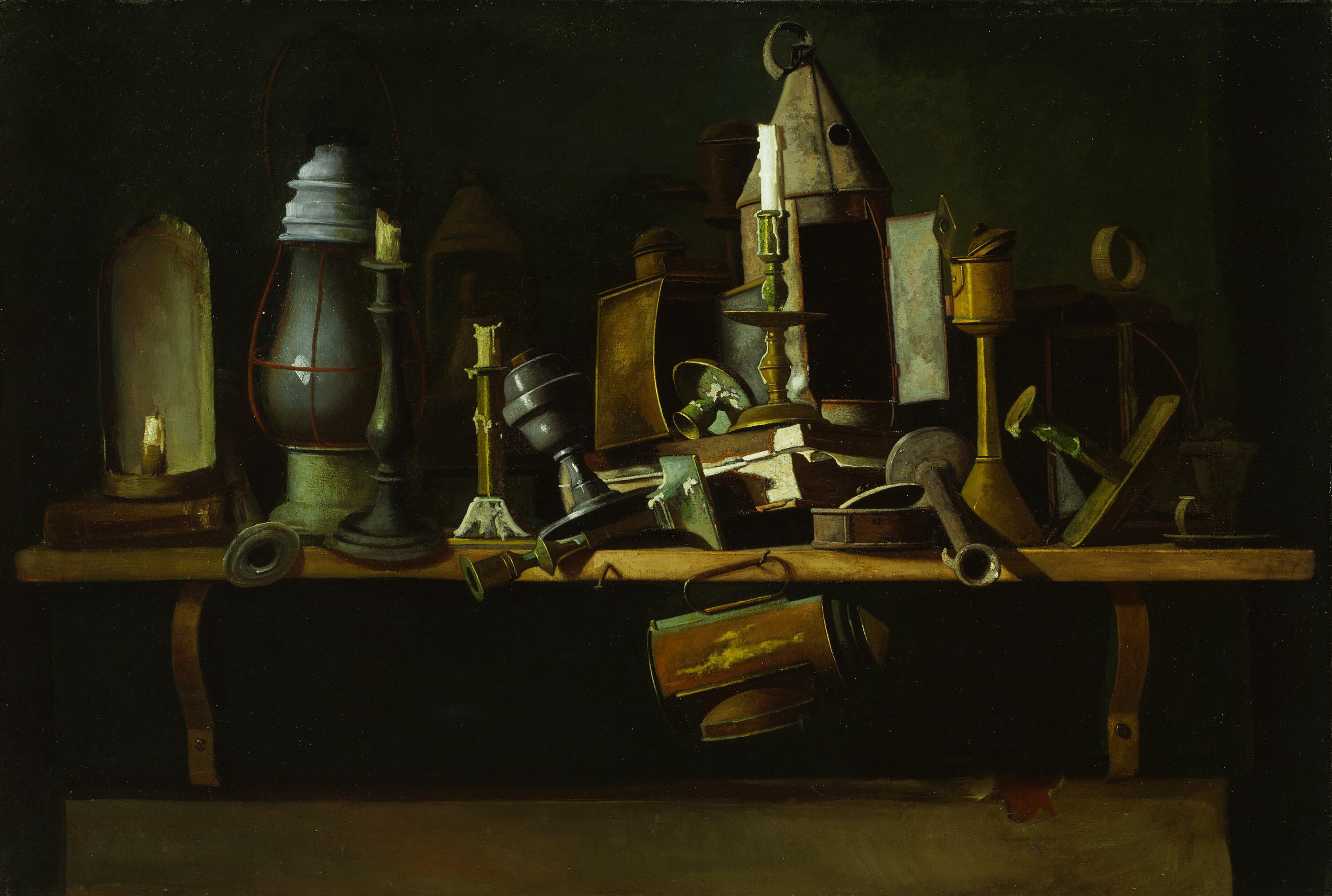JudgementDay

John F. Peto: Lights of Other Days (1906)
"That difference will not be undone."
Six months ago, The Muse began her campaign by researching histories of local campaigns to discover what had gone wrong and right so that she might focus upon elements likely to help her get elected. She feigned disinterest, insisting that she was just weighing the pros and cons to decide, but she had already decided to run. Her only questions were about how to productively pursue that end. She registered as a candidate on the first day registration opened. She rented a post office box, set up a bank account, and set about designing her campaign's look and feel, and while she had help, she decided. She chided me into volunteering as her campaign manager, a role I later renamed Campaign Mismanager, a title that better described my contribution. Please make no mistake: I played the role of placeholder. She managed her own affairs.
There should have been a rule that spouses couldn't serve in any formal role on any campaign because a couple's peccadillos couldn't help but go on public display whenever that occurred. The same humiliation that arises when I cannot correctly interpret The Muse's ever-changing laundry sorting algorithm went on public display. Most days, my role required me to let her decide since I never once successfully supplemented her judgment. Often, we'd have to undo something I knew I shouldn't have been entrusted with attempting in the first place. There was no escaping the patterns within which we had been permanently embedded. I finally found my role distributing literature, dropping fliers on porches, a pastime requiring little more than grit, though even then, I succeeded primarily because nobody was watching how I performed.
The final ten days of the campaign were largely silent. Once the mailers were delivered, dropping fliers made little sense. We were nearly out of literature by then—something more than five thousand of those delivered the old-fashioned way, face-to-face with voters. We met few who would admit support for the opponent. We heard little from the opponent's campaign. I insisted that she seemed like a coerced candidate, someone whose heart wasn't in the effort, whose speech patterns disclosed a discernable lack of passion, and who seemed distinctly ill-prepared. We understood that little of that mattered. Who knows how a voter decides who to support? We've become so danged tribal these days.
In the last campaign team meeting, we decided to cease further campaigning. Sure, our candidate would continue showing up at her usual meetings and at least attempt to attend the more prominent public gatherings, business openings, and ethnic celebrations to see if she might get her picture taken, be there, and potentially be counted. Otherwise, we'd spend the final week suspended, unable to further influence the outcome. We'd await judgment as if the result had already been decided. On the morning of JudgementDay, one hopes for a benevolent judge, one who noticed how our candidate cared and how she prepared and always showed up. She'd started performing as if she'd won from the first moment of her campaign, taking every move more seriously than anyone else. If she wins, she will have willed her success.
She declared that on JudgementDay, she'd make her loyal team breakfast, a green chile breakfast burrito brunch, and make a stand-up supper for those who volunteered to serve in the fair booth and drop literature, my infamous mac&cheese, and salads. She'll gather with others once the votes have been counted to celebrate her win or her loss, for as she continually insists, she will win whether or not the electorate elevates her to the job. I contend that she'll very likely end up as one of the twenty-five most influential voices in this valley whether she wins or not, if only because she will have willed that to happen. Democracy seems the most primitive process by which to select leaders. It's a retail business regardless of how many wholesalers engage. It comes down to the judgment, not of any superior being but of common ones, with all their imperfections. The candidates themselves were never perfect, just engaged. They stood up in an overcrowded theater to yell something other than Fire! They made a difference the day they decided to run. That difference will not be undone.
©2023 by David A. Schmaltz - all rights reserved


